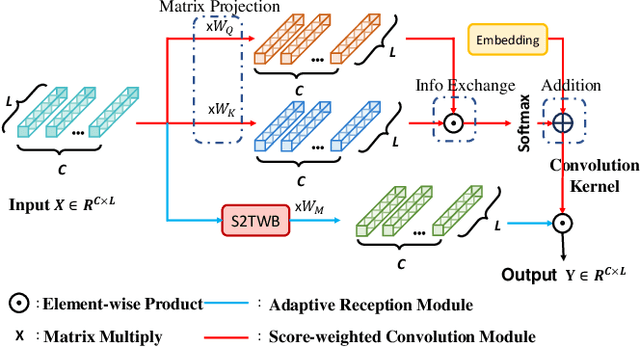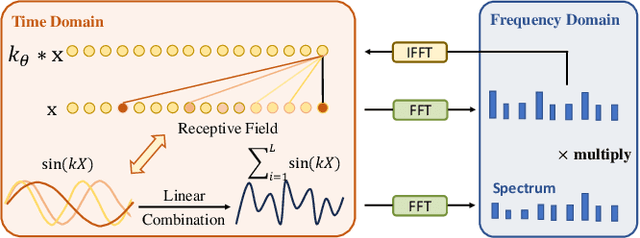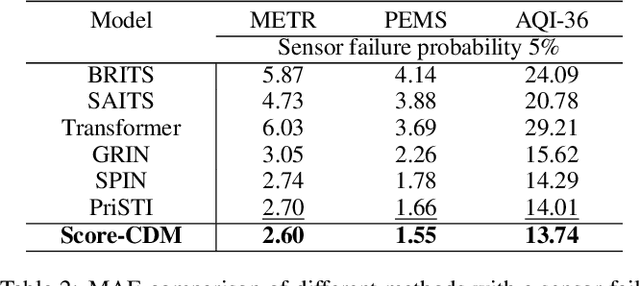H. Miao
Score-CDM: Score-Weighted Convolutional Diffusion Model for Multivariate Time Series Imputation
May 21, 2024



Abstract:Multivariant time series (MTS) data are usually incomplete in real scenarios, and imputing the incomplete MTS is practically important to facilitate various time series mining tasks. Recently, diffusion model-based MTS imputation methods have achieved promising results by utilizing CNN or attention mechanisms for temporal feature learning. However, it is hard to adaptively trade off the diverse effects of local and global temporal features by simply combining CNN and attention. To address this issue, we propose a Score-weighted Convolutional Diffusion Model (Score-CDM for short), whose backbone consists of a Score-weighted Convolution Module (SCM) and an Adaptive Reception Module (ARM). SCM adopts a score map to capture the global temporal features in the time domain, while ARM uses a Spectral2Time Window Block (S2TWB) to convolve the local time series data in the spectral domain. Benefiting from the time convolution properties of Fast Fourier Transformation, ARM can adaptively change the receptive field of the score map, and thus effectively balance the local and global temporal features. We conduct extensive evaluations on three real MTS datasets of different domains, and the result verifies the effectiveness of the proposed Score-CDM.
 Add to Chrome
Add to Chrome Add to Firefox
Add to Firefox Add to Edge
Add to Edge